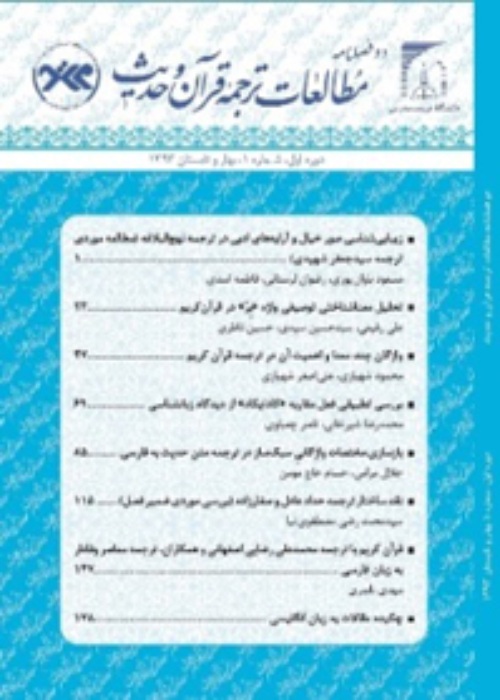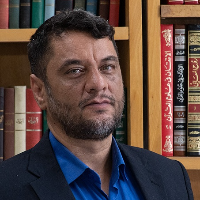The Semantic study and comparison of the divine names in the field of creation
Study and recognition and comparison of the divine names, plays an important role in understanding, translation and interpreting the Qur'an. In this research by using descriptive and analytical method, the eight divine names in the field of creation are examined. Based on Arabic poetry and prose, words of linguists and commentators, linguistic contexts, and succession relations, their exact meaning and their use in different verses should be revealed. "Sanee" means who create with precision, science and power. "Sanee" translated to "Maker". "Khaliq" means who create on the basis of size and creativity. The word "Khaliq" in Qur'an is associated with two names: "Rabb" (The Lord) and Razegh" (The Provider). "Khaliq" translated to "Creator"."Fatir" means who fission the inexistence and signifies God's power and greatness. "Fatir" translated to "Bringer". "Mobde", according to its antonyms [Moiid], means who began the creation. "Mobde" translated to "Producer". "Monshe" means the creator who exalt the creations. "Monshe" translated to "Establisher". "Badiee" implies that the Creator's innovation and his needless from former matter and form "Badiee" translated to "Originator". "Bare" means the Creator who himself and His creations are isolated from all flaws. "Bare" translated to "Shaper". "Zare" means the creator that his creations are vast, wide, and dispersed. "Zare" translated to "Multiplier". Without questioning it must consider the conceptual difference between these names in the translation, interpretation and cite of the verses.
-
Critique of Self-esteem from Nathaniel Branden’s Perspective in Light of Islamic Teachings
Leila *, Ali Ghazanfari, Maryam Fatehizade
Journal of Quran and Religious Enlightenment, Spring and Summer 2024 -
Solutions to strengthen self-dignity from the perspective of verses and traditions using the method of theme analysis
*, Ali Ghazanfari, Maryam Fatehizadeh
Journal of Educational Doctrines in Quran and Hadith, -
The Principle of Divine Justice and the State Based on Religious Democracy
Renani *
Journal of transcendent Policy, -
Examining the sentence: ﴿و لما سقط فی ایدیهم﴾]Walammâ soqeṭa fêê ay dêhem [(Qur'an, A'raf/149) In the interpretations of the Qur'an, Arabic literature and Persian translations of the Qur'an
Renani
Translation Studies of Quran and Hadith,



